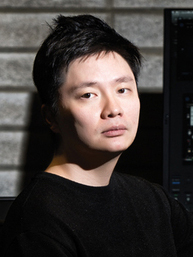Born in 1979, KIM Tae-seong is a film composer and music producer. Particularly fond of film scores since his childhood, he would gather a large collection of soundtrack cassette tapes and even record himself his own cassettes. As he would listen to the music of Indiana Jones, the Goonies and E.T. until they wear out, he came to think about how these music pieces interact with their respective movies. He started composing his own soundtracks in his early 20s for movie trailer...
More
Born in 1979, KIM Tae-seong is a film composer and music producer. Particularly fond of film scores since his childhood, he would gather a large collection of soundtrack cassette tapes and even record himself his own cassettes. As he would listen to the music of Indiana Jones, the Goonies and E.T. until they wear out, he came to think about how these music pieces interact with their respective movies. He started composing his own soundtracks in his early 20s for movie trailers, and eventually found himself assigned at just 24 to the soundtrack of romcom movie <Au Revoir, UFO> (2004), thus becoming known at the time within the industry as the youngest music director. In 2008, he won Best Music from the Korean Film Critics Association for his work on North Korea-set drama <Crossing> (2008). He gained wider recognition in 2011 thanks to period film <War of the Arrows> (2011), one of the biggest successes that year. Having become busier with every year, KIM is credited for some of the most notable Korean films of recent years, such as the war epic <Roaring Currents> (2013), currently sitting at the top of the all-time Korean charts with 17.6 admissions, but also <Extreme Job> (2018), the cops comedy that stormed the box office in early 2019 to become the second most watched Korean film of all time. His talent was recognized again in 2018 as he picked up Best OST at the Jecheon International Music Film Festival as well as Best Music from the Korean Critics Association for the historical drama film <1987: When the Day Comes> (2017). KIM is also prone to experimenting with unusual sounds, as proven with his recent work on <SVAHA: THE SIXTH FINGER> (2019), for which he notably recorded a Tibetan monk singing and twisted it in order to imagine what an esoteric form of Buddhist music would sound like.
Less






